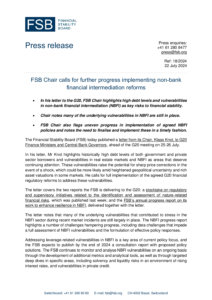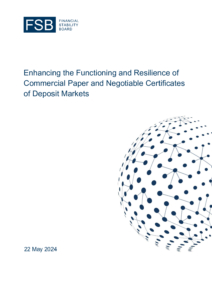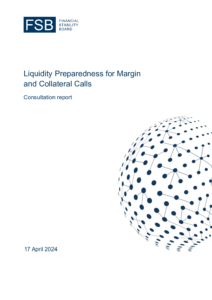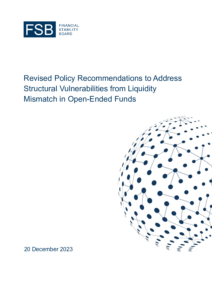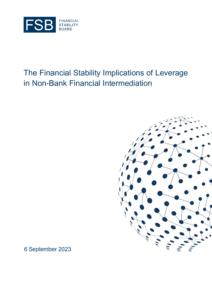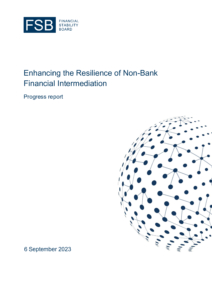The main focus of the FSB policy work to enhance NBFI resilience is to reduce excessive spikes in the demand for liquidity; enhance the resilience of liquidity supply in stress; and enhance risk monitoring and the preparedness of authorities and market participants.
This year’s progress report describes recent and ongoing work by the FSB, in collaboration with standard- setting bodies (SSBs), to enhance the resilience of the NBFI sector. The design and implementation of NBFI policies continues to advance, albeit at an uneven pace across jurisdictions. A number of policy deliverables have already been agreed under the FSB’s work programme, including to enhance money market fund resilience (2021) and to address liquidity mismatch in open-ended funds (2023). Policies have also been proposed by the FSB and SSBs in early 2024 to enhance margining practices and the liquidity preparedness of non-bank market participants for margin and collateral calls.
A key area of current policy focus is to enhance the monitoring of, and address financial stability risks from, leverage in NBFI.
The report provides an overview of the FSB’s medium-term NBFI work programme, which it will carry out in collaborations with the other standard-setting bodies.
This work will help the FSB to determine whether collectively the reforms have sufficiently addressed systemic risk in NBFI, including whether to develop additional tools for use by authorities.
Overview of the FSB’s medium-term work-programme
The FSB’s medium-term NBFI work programme to assess and address systemic risk in NBFI is structured in three main areas:
-
in-depth assessment and ongoing monitoring of vulnerabilities in NBFI
-
analysing the functioning and resilience of repo markets
-
enhancing NBFI vulnerabilities indicators in FSB surveillance
-
sharing experiences and lessons among authorities on approaches and tools used in FSB jurisdictions to assess vulnerabilities in NBFI
-
-
development of policies to enhance NBFI resilience
-
sharing experiences and lessons on the design and use of policy tools in FSB jurisdictions to address systemic risk in NBFI
-
developing policy approaches to address financial stability risks from NBFI leverage
-
enhancing understanding of, and considering how to, address common NBFI data challenges
-
-
monitoring of the implementation and assessment of the effects of NBFI reforms
-
monitor and report publicly on implementation progress and challenges of agreed NBFI reforms
-
assess the effectiveness of reforms in addressing risks to financial stability, including for money market funds in 2026 and open-ended funds in 2028.
